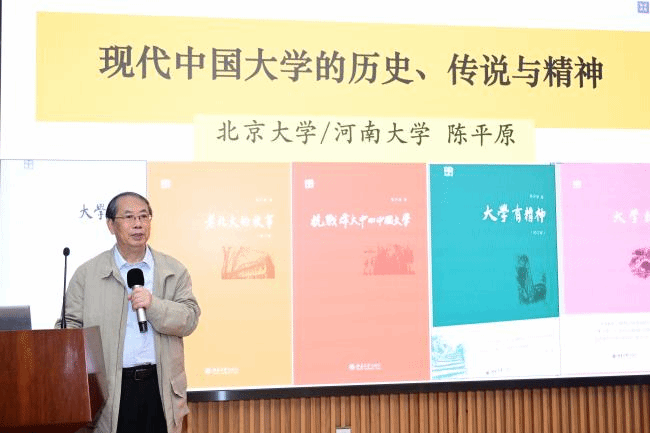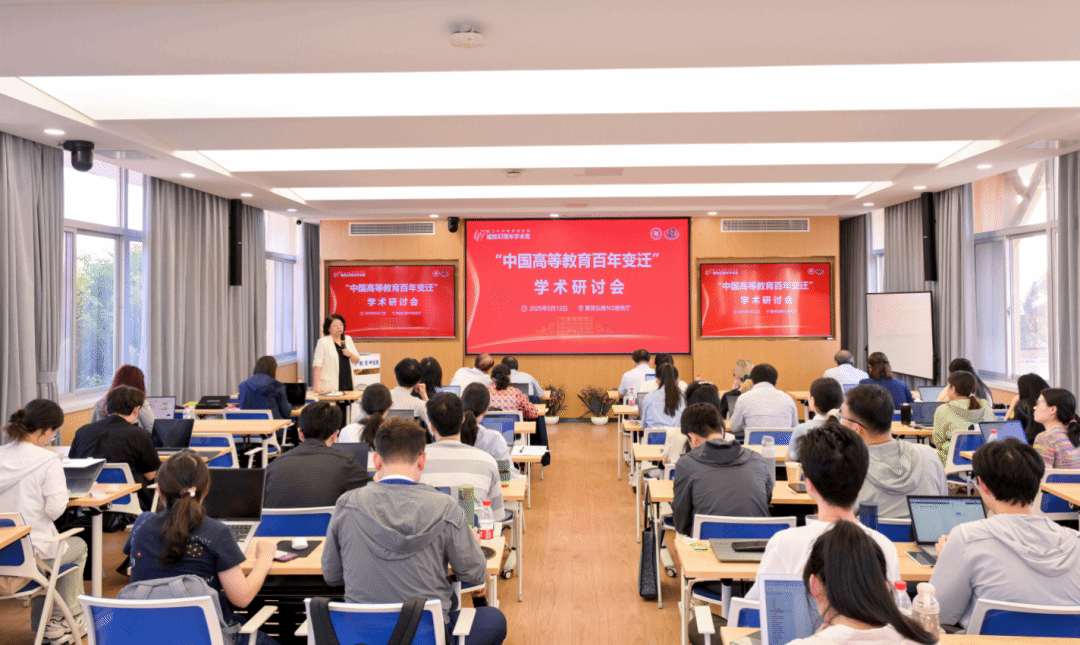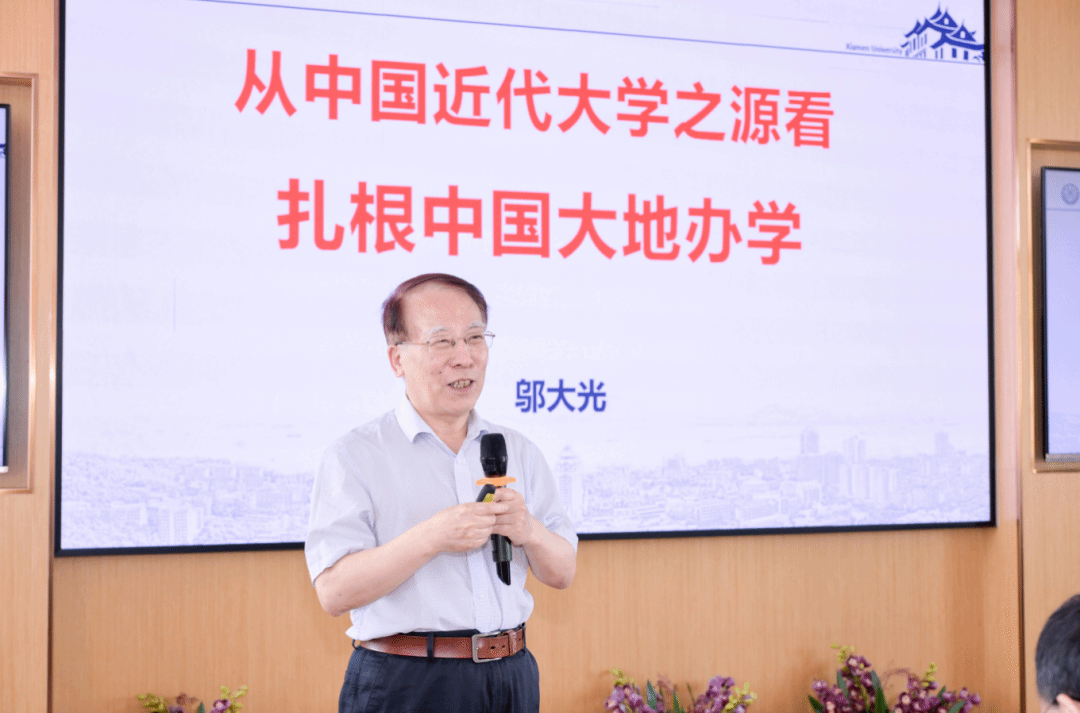On May 12, 2025, the "Centennial Changes in Chinese Higher Education" academic seminar, hosted by our institute, was successfully convened at Xiamen University. The event brought together distinguished scholars including Chen Pingyuan, Boya Chair Professor at Peking University; Professors Wu Daguang and Zhu Shuiyong from Xiamen University; Professor Zhou Chuan from Soochow University. Nearly a hundred faculties and students from our institute attended the seminar.

During the morning session, Professor Chen Pingyuan delivered a report titled “The History, Legends, and Spirit of Modern Chinese Universities”, with Professor Wu Daguang presiding. Professor Chen identified six pivotal moments in the century-long development of Chinese universities and posited that a seventh critical juncture for China's higher education is now on the horizon. He emphasized that future development of university must be deeply rooted in China's specific context, requiring strategic adjustments and targeted improvements to foster a robust ecosystem for advancement.

During the roundtable forum, Professors Chen Pingyuan, Wu Daguang, Zhu Shuiyong, and Zhou Chuan engaged in in-depth discussions on pivotal issues concerning the historical trajectory and future pathways of Chinese universities. The panel also featured lively debates on the distinction between universities that are "grown in" China versus those merely "located in" China.
Professor Zhu Shuiyong stressed that modern Chinese universities possess a unique "Chinese cultural DNA" that runs through their institutional evolution, demonstrating a distinctive national character and serving as a key identifier differentiating them from other universities worldwide.
Professor Zhou Chuan noted that the development of Chinese universities has been influenced not only by specific historical, social and cultural environments, but is also rooted in their inherent cultural genes and academic traditions.
Professor Chen Pingyuan pointed out that amid rapid technological advancement, holistic education and well-being will become the central focus for most universities.
In concluding remarks, Professor Wu Daguang emphasized that the integration of artificial intelligence with higher education will be crucial for future development, warranting further research into achieving deeper integration and maximizing technology's positive role in education.
In the afternoon, thematic reports were delivered by Professors Wu Daguang and Zhou Chuan, with the session chaired by Professor Zhao Tingting, Vice Dean of the Institute of Education.

Professor Wu presented on "Grounding University Education in the Chinese Context: Perspectives from the Origins of Modern Chinese Universities." He argued that historical research is indispensable to higher education studies in construction of a leading country in education. Tracing the earliest forms and five developmental stages of modern Chinese universities, Professor Wu called for re-examining of the rationales shaping higher education: historical and contemporary, Western and Chinese, educational and national, as well as systemic and governance-based. He concluded by urging a renewed understanding of the three core functions of higher education and their interrelationships, which sparked a lively discussion

Proessor Zhou then delivered a presentation titled "Hu Shi’s Spirit of the Educator," offering an in-depth analysis of Hu Shi’s distinctive influence and enduring legacy as an educator. He characterized the "educator's spirit" as a moral quality manifested through concrete actions, emphasizing its continuing relevance in inspiring educators to strengthen China's educational system.

The seminar provided faculty and students with deeper insights into the trajectory and future direction of Chinese universities, while highlighting the importance of broadening academic perspectives to develop a holistic understanding of higher education within both international and national contexts.
Written by: Cao Beining, Yan Jiaxin, Ye Xiaofei, Yang Derui
Translated by:Lin Hanying